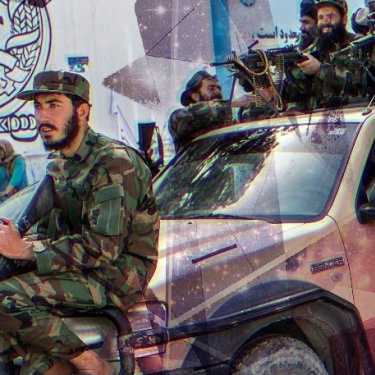Nine arrested in Taliban offensive against Afghan journalists

Nine journalists have been arbitrarily arrested by Taliban security forces in the past ten days in Afghanistan in a crackdown without precedent this year. As the Taliban are celebrating the second anniversary of their takeover, Reporters Without Borders (RSF) calls for the unconditional release of all the journalists they are holding.
The nine journalists arrested in this chilling crackdown are Faqir Mohammad Faqirzai, Jan Agha Saleh, Haseeb Hassas, Habib Sarab, Sayed Wahdatullah Abdali, Shamsullah Omari, Wahidrahman Afghanmal, Ataullah Omar and Parwiz Sargand. They were arrested in raids in five of Afghanistan’s provinces without any reason being given and all but one are still being held. Where they are held is not known.
“Fear and uncertainty now reign in Afghanistan. Two years after a new regime was established, these arrests have again given the lie to the assurances that certain Taliban officials gave about respecting press freedom. The record on violations of the right to information is appalling, and the regime is fully responsible. RSF urges the competent Taliban authorities to immediately order the release of the detained journalists and to finally and truly guarantee press freedom.
Wave of raids
Raids on independent news media and journalists have taken place at an astonishing pace in recent weeks. A raid by the Taliban security forces on 31 July led to the closure of the Hamisha Bahar, Nen and suspension of Jawanan radio and TV stations broadcast in the eastern province of Nangarhar. This has terrified the personnel who were at their posts at the time.
Sayed Wahdatullah Abdali, a journalist working for the Bakhtar news agency, was arrested in Ghazni, the capital of the eastern province of Ghazni, on 6 August. Habib Sarab, an employee of the privately-owned Ariana News TV Network, was taken away by Taliban intelligence officials three days later in the neighbouring province of Paktia. Haseeb Hassas, a journalist with the national news and entertainment radio station Salam Watandar, was arrested at 11 a.m. the next day in the northern province of Kunduz.
At 3 p.m. the same day back in Nangarhar province, it was the turn of Radio Kilid – a source of cultural, educational and societal programmes that is one of Afghanistan’s most popular radio stations – to be the victim of yet a raid by the security forces, who arrested one of its managers, Faqir Mohammad Faqirzai, and a reporter, Jan Agha Saleh. No explanation has so far been provided.
The next raid was in the southern province of Kandahar on 13 August, when the security forces arrested three journalists. Two were arrested first: Ataullah Omar, who reports for the international news outlet ToloNews, and Wahidrahman Afghanmal, an independant local reporter. When Shamsullah Omari, a journalist with another local media, pleaded with the local authorities for his colleagues’ release, he was also arrested. Afghanmal was released the next day.
Local journalist Parwiz Sargand, a representative of the Afghan National Journalists Union (ANJU), was meanwhile also arrested on 13 August in Asadabad, the capital of the mountainous northeastern province of Kunar. His detention brought the total number of journalists now held in Afghanistan to 12. They include Mortaza Behboudi, a journalist with French and Afghan dual nationality who has been held since 7 January.
Promise not kept
The most disturbing aspect of these raids on independent media outlets is that, in at least five cases, they were carried out with the support of the General Directorate of Intelligence, (GDI) without reference to the Media Complaints and Rights Violations Commission (MCRVC). Reestablished in 2022 after a year-long suspension, the MCRVC is supposed to prevent other departments meddling in media affairs and to ensure that a “neutral” group investigates each reported violation, according to the spokesman of the Taliban regime and former deputy information minister Zabihullah Mujahid.
After several months, it is clear that the information ministry has not adhered to any of the safeguards. Moreover, media outlets are being systematically persecuted in the name of the Sharia in complete violation of Afghanistan’s mass media law. The overwhelming majority of journalists are calling on the authorities to recognise this law, but the future of independent journalism in Afghanistan looks bleak.
Despite the draconian demands being made by an increasingly aggressive Islamist regime, “free” media are still trying to survive, as several journalists recently told RSF.
